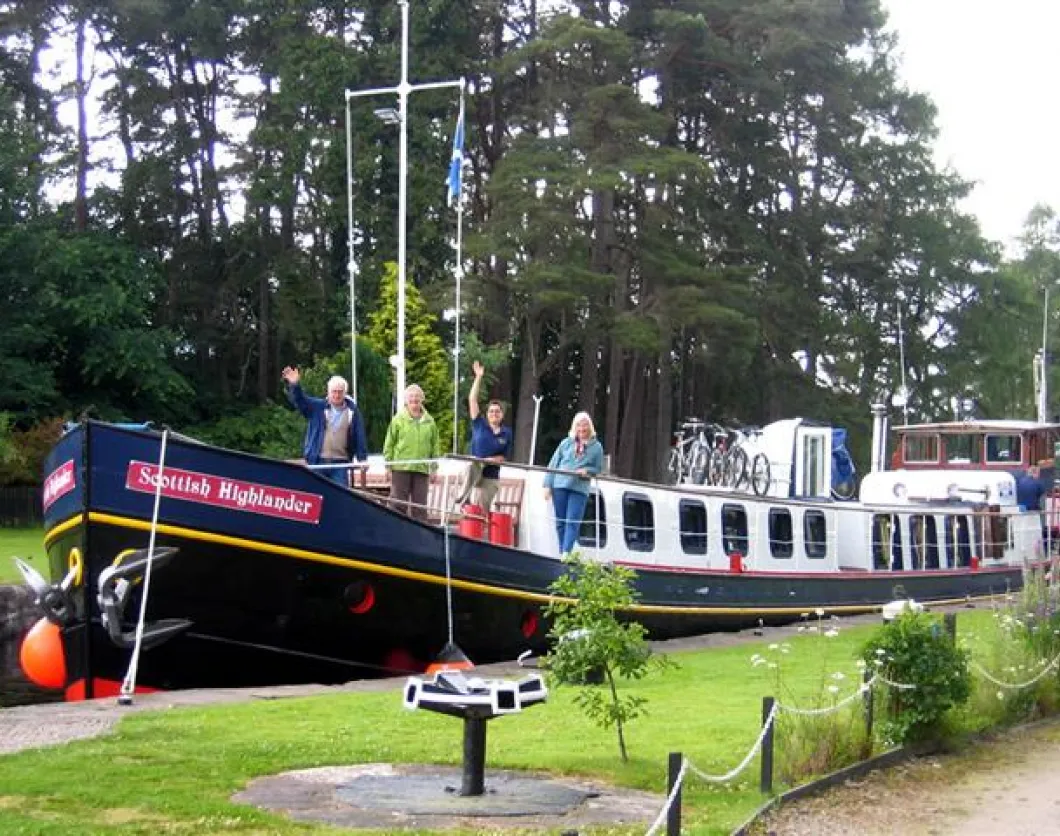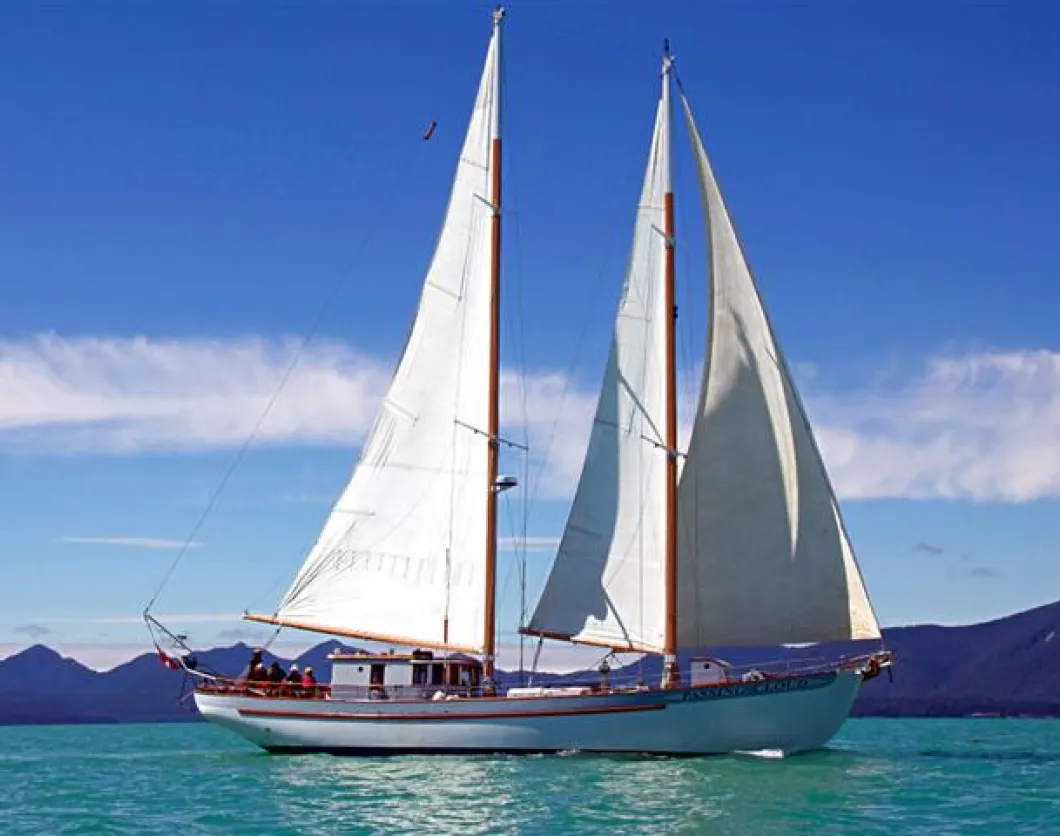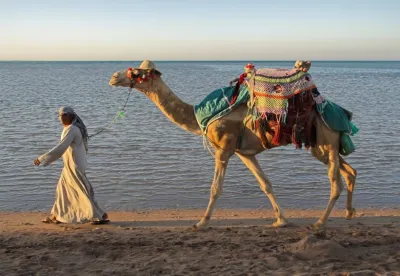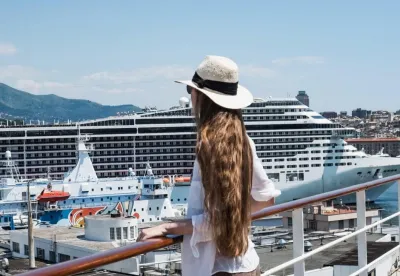A growing number of boomers and older retirees have in common a desire to travel by water, whether on rivers, canals and lakes or on protected seas and vast oceans. This should not be a challenge to find with 70% of the Earth’s surface under water. With a large conventional cruise ship, the draw will most likely be that this type of vacationing is Easy, Elegant and Entertaining ... all good motivators for a mainstream, rest and relaxation holiday. However, the delivery of a fourth E … Education … is predictably in short supply on these giants of the sea.
In the past two decades, the demand has grown rapidly for more added-value than the three E’s which, in turn, is creatively growing the market for smaller vessels such as luxury barges, river cruise ships, large sailing and motor yachts and expeditionary ships. These offer comfortable, effective ways to explore nature at close quarters, meet unfamiliar cultures in small groups and consider a wide range of theme lectures relating to destinations visited. What is the common ingredient among all these forms of “alternative cruising”? The Educational Factor.
Most people who search out alternative cruising are very well educated and they wish to go on learning in different venues for their entire lives. They are generally active and enjoy the challenge of pushing themselves physically and mentally within whatever new frontiers they have chosen to explore. They are not looking for bargain basement prices; they are looking for meaningful educational vacations with small groups of like-minded people. Of course, they recognize that this will come with a higher price tag and they are prepared to pay for it as long as the promised value is delivered.
Small-scale nature cruises are a popular segment of the soft adventure tourism market. Their mission is to offer a close look at birds, land- and marine mammals on their home turf, often to land areas only accessible by water. With such cruises generally hosting eight to 100 participants, a family-like bond quickly develops among passengers and staff as formal barriers melt away. On-board naturalists, selected for their expert credentials and particular knowledge of areas visited, are an expectation of participants. There is an equal expectation of unlimited accessibility to those experts for on-deck nature spotting and shoreline Zodiac excursions, for scheduled lectures, and even for one-on-one conversation over a pre-dinner drink or a meal. The learning element is woven into the voyage in many ways.
Take the Passing Cloud, for example. This classic 70-foot wooden schooner is owned by Outer Shores Expeditions ship’s captain, Russell Markel (outershores.ca), currently delivering nature-based educational adventures with multi-day itineraries that cover the length of British Columbia’s west coast.
“Guided by a crew of professional mariners and expert naturalists,” says Markel, himself a PhD graduate in BC west coast zoology, “our small groups of 8 guests explore, experience, and learn about the stunning wildlife and ancient cultures of coastal British Columbia while living and traveling aboard the Passing Cloud. Most guests are as interested in conservation as I am, so we invariably have lively discussions about how to achieve a healthy human balance with the natural world.”
The recent growth of expeditionary cruises (vessels that carry up to about 150 guests) has dramatically expanded remote area exploration including cruises to some of the world's most exciting and abundant birding destinations.
“Small ship cruises are the perfect educational platform for bird enthusiasts to view species that might otherwise be difficult, or even impossible, to reach for the average traveler," notes AdventureSmith Explorations (adventuresmithexplorations.com) director and founder Todd Smith, himself an avid birder and a specialist in expeditionary cruises. "While all small ship nature cruises have an element of birding to them, we are seeing a huge increase in self-identified bird watchers seeking to expand their horizons, recognizing small ships as a comfortable, accessible way to get closer to birds in their natural settings. In the past five years, AdventureSmith Explorations has experienced a five-fold increase in birders interested in taking small ship cruises, and senior travelers are making up the majority of that increase."
However, nature and wilderness appreciation are only one educational motivator for selecting a small-ship cruise. Canal barging operators like European Waterways (gobarging.com) has created a menu of educational themes from wine appreciation and art cruises to antique expertise and garden cruises. Respected river cruise operators such as Uniworld (uniworld.com) are also recognizing a desire for cultural enrichment on their European itineraries, offering guest lectures on some cruises around such themes as the influence of the Roman Empire along the Rhine and Moselle rivers, understanding Russia on the Imperial Waterways of Russia cruise, and the magic of myths, legends and fairy tales told along the Danube river.
The Galapagos Islands is one of the world’s great nature classrooms, with almost all exploration there accomplished by cruise boats of various sizes. Being aboard a vessel that employs authoritative approachable naturalists enriches the experience enormously. Ecuador-based Ecoventura’s three signature yachts (ecoventura.com) carry only 20 people per seven-night voyage, making them the perfect classroom with lectures aboard and fabulous field trips daily to meet the Galapagos wildlife in an intimate way without disturbing the rare and endangered species there.
These are just a sampling of opportunities to blend the adventure of cruising with an educational experience craved by so many travelers today. For some, nothing less than total immersion will do; for others the learning goal may be less intense but just as meaningful. There have never been so many cruises that expertly deliver the Educational Factor and never so many people who are keen to learn on their cruise holiday.
By Alison Gardner
Editor/journalist, Alison Gardner, is a global expert on nature-based vacations and cultural/educational travel.











